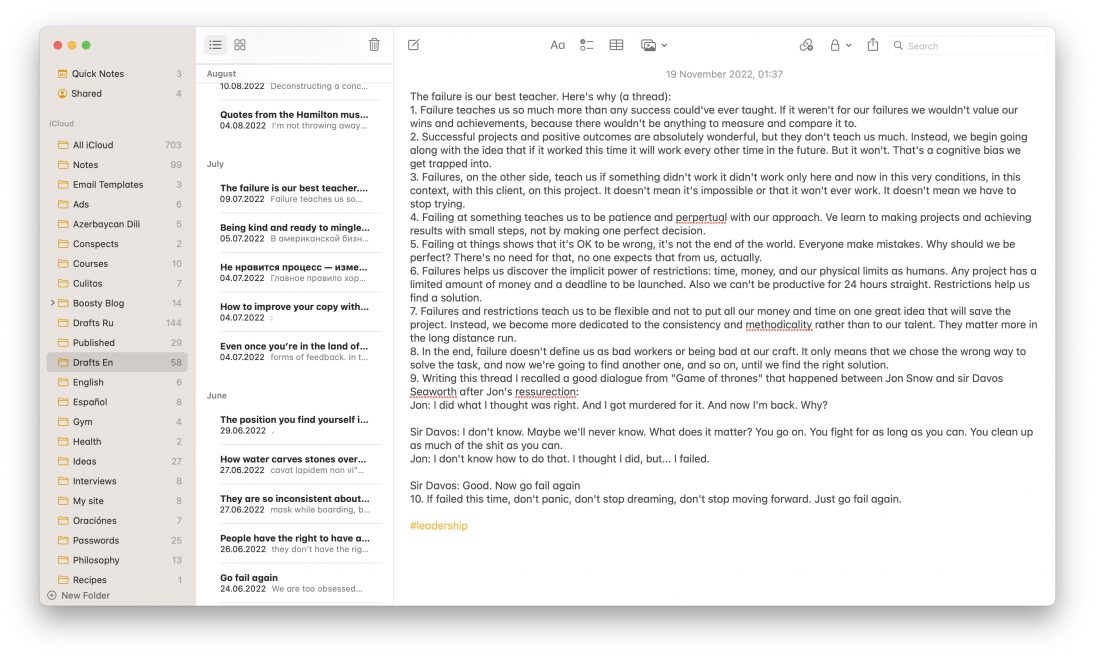Prefer not to know ★
There’s an endless flood of information. It keeps going 24/7.
And not just information. Knowledge, too. Courses, webinars, conferences, new technologies. We’re forced to be aware of all those things, care about them, have an opinion on them. But should we?
We learn so many things through life that we’ll never put to use. Daily we receive more information than average person from 19th century probably received in their life span. For example, in 2011, Americans took in five times as much information every day as they did in 1986. That’s insane!
We’re overdosed with knowledge. The worst thing is that we’ve decided that we’re obliged to know everything and be always aware. We are voluntarily agreed to have our attentional filters overwhelmed on a regular basis. We should leave some mental space for just being, instead. As we used to do 30−50 years ago.
I remember that even in my childhood that took place in 1990s we didn’t have this problem. On the contrary, people had to make a lot of effort to gain some knowledge, to get some information. To read up for exams you have to go to the library or ask a friend who had a PC to visit him so you could search something on the internet. You had to be creative to get information.
So much we didn’t know back then! And we couldn’t care less that we don’t. We didn’t consider whether it was a lack of knowledge or we were uneducated. We simply didn’t give a fuck about that. We were much more easy-going and didn’t put a pressure on us for not knowing. Things are different today, bad different.
So when I hear people say:
— Oh, there this ChatGPT thing. I have to learn more about it…
— Oh, there’s this Barbie thing, I should create a pic of me as a Barbie doll
… Oh. there’s a new program language I should learn to code in…
I think to myself, “Jeez, I am lucky not to know!” Because no matter how hard I try to filter the incoming flow of information, people still will bring it up and post it anyway. There’s literally nowhere to hide from it these days.
I prefer not to overload my brain with that information. I prefer not to know. 'Cause let’s be honest, 99% of news and information on our feeds is a complete bogus. It’s useless. So why bother? Why waste our energy, motivation, and attention on it? Why please interests of those who will not care back?
You don’t need to know everything that is out there. It’s hard to be good at one thing, and yet people try to be good at plenty. Instead of stuffing your brain with another new technique do what you already do well and perfect your routine. And choose wisely and thoroughly what you want to see on your feed, what you’d like to draw your attention on.
Know your drill. Keep your focus clear and steady. Prefer not to know.
Subscribe to my newsletter and follow me on Mastodon to receive new interviews on management and leadership on this blog.
